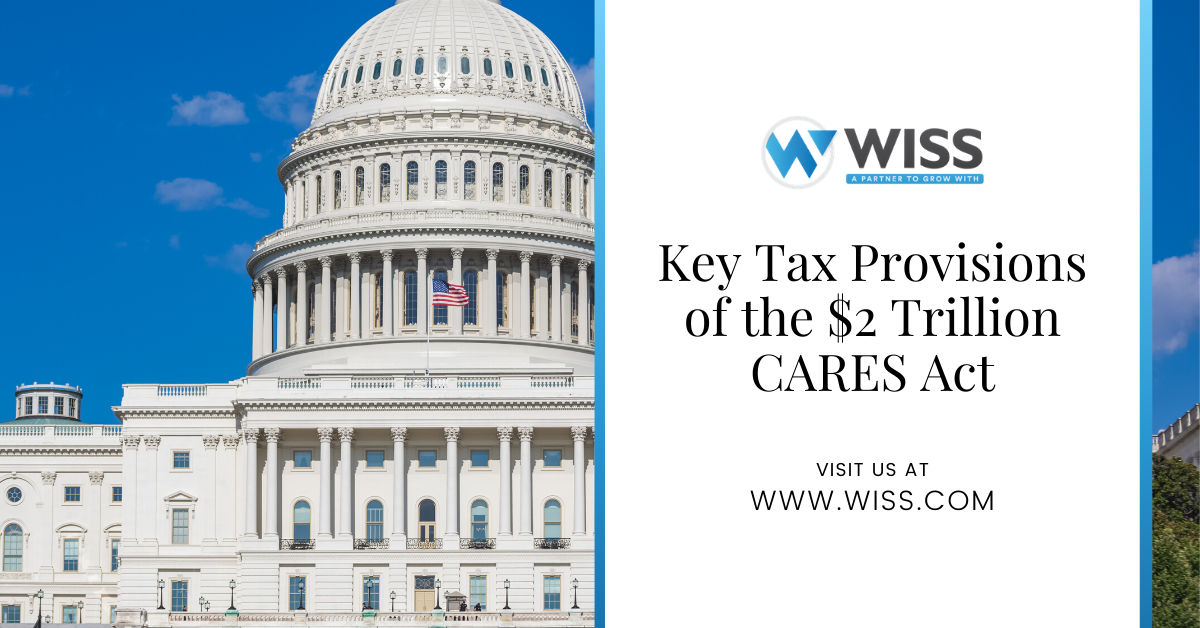The Senate voted last night, 96-0, to approve the Coronavirus Aid Relief, and Economic Security Act or the CARES Act, which has more than $2 trillion in spending and tax breaks to assist economically and fund a nationwide effort to stop the coronavirus. At this writing, the CARES Act is still awaiting House approval and the President’s signature, which is not expected until tomorrow.
The bipartisan legislation includes about $500 billion that can be used to back loans and provide assistance to companies, including $50 billion in loans to the airline industry, as well as state and local governments. The CARES Act also includes $350 billion in assistance provided to small businesses, as well as $150 billion for hospitals, medical equipment and supplies.
The key business tax provisions in the CARES Act include:
- The elimination of the taxable income limit for certain net operating losses (“NOL”) and allowing businesses and individuals to carry back NOLs incurred in 2018, 2019, and 2020 to the five prior tax years.
- Suspension of the rule limiting business losses to amounts in excess of certain thresholds;
- Acceleration of refunds of previously generated corporate alternative minimum tax;
- Loosening of the limitation on the deduction of business interest from 30% of adjusted taxable income to 50% of adjusted taxable income;
- A technical correction to fix a drafting error in the Tax Cuts and Jobs Act in order to allow for “qualified improvement property” to qualify for bonus depreciation, as was the original intention; and
- The addition of a refundable employee retention credit provided to encourage employers to retain employees who cannot report to work due to the coronavirus.
The key individual taxpayer provisions include:
- Direct cash payments to individuals of $1,200 for each adult ($2,400 for joint return filers) and $500 for each child. There is a phase-out for those with incomes over certain thresholds ($75,000 for single filers and $150,000 for joint filers);
- A provision eliminating penalties for early withdrawals of up to $100,000, through December 31, 2020, from retirement savings accounts needed to address coronavirus related hardships; and
- A modification to charitable deductions, allowing for a $300 “above-the-line” deduction as well as an increased limitation to the deductible amount that can be donated.
Also included in the CARES Act is:
- A provision that temporarily expands the tax exclusion for employer-provided educational assistance to include employer payments for qualified educational loans to an employee or to a lender; and
- A variety of non-tax related provisions that would provide loans to help struggling businesses, aid state and local governments, fund health care providers and substantially expand unemployment insurance.

 Previous
Previous









